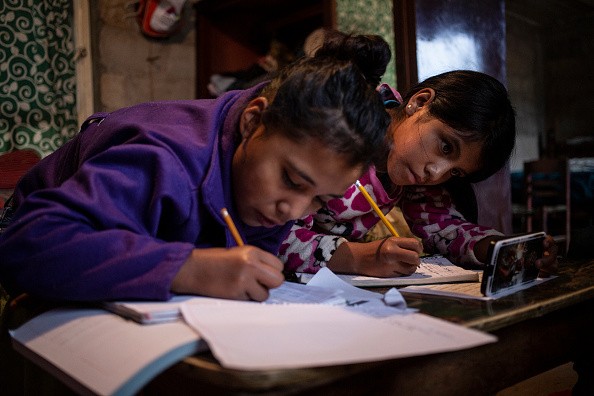Latino Families Now Struggle with Remote Learning
Different schools are now starting the year through remote or hybrid learning plans and several Latino families said they are facing difficulties when it comes to teaching their children.
Latino resource centers like Adelante said community members struggle in helping their children learn because of language barriers and education.
One mother said that the current situation shows many difficulties that she would rather choose her kids to go back to in-school learning than see the children fall behind.

Rita, a mother of six Toledo Public School students, said she could only speak Spanish and understands a little of the English language.
"For me, the biggest worry is for them to do their classes at home because I don't speak much English. I understand some but not enough to help my children," Rita said in Spanish.
Rita, a Latino single mother, said she has a fear of teaching her children through a virtual learning environment to that of contracting COVID-19.
Sabina Serratos, the executive director for Adelante, said that Rita is not the only parent worried about the new setup for learning.
One of the most significant barriers in remote learning includes language differences and communication between the student, parent, and the schools.
"We're also looking at access to technology, the education piece, the unemployment rate... We'll speak to a lot of folks that don't have the education. You know, they didn't finish," Serratos said.
Rita also told WTOLL11 that she already had issues even when her kids were not yet in remote learning due to her language. Rita would like for each school to have an interpreter at each location.
"There are many other things that we, as Latinos, go through with the schools because of the language. And we go, but they don't give us attention," she added.
Serratos noted that Rita has been in communication with the schools. The executive director believed that they are doing what their facility can do for now. However, Adelante aims to develop a plan in the next few weeks after knowing the needs of every family.
Serratos said if families are more interested and can bring their students to the facility, they can provide a format for them to learn in person. Adelante would be supplementing what the students would learn from their teachers and home schools.
The alternative option would be meeting students virtually every week if needed, as per Serratos.
Meanwhile, Rita hoped that her children can get back to regular classes soon, even with the fear of coronavirus pandemic.
She said she's the only one who can help her six children now that her oldest daughter will go back to study. She noted that her daughter can no longer take over the responsibilities for her younger siblings.
Officials of Toledo Public Schools (TPS) reiterated that they are working on translating and delivering all the information needed to non-English speakers. They are asking people to reach out if they need help.
The number to call for assistance from TPS is 419-671-0001. If you want to ask regarding translations or support in Spanish, you can also call Adelante at 419-244-8440.
Check these out:
IRS to Send Out 50,000 Stimulus Checks Next Month
Segregated Parks Contribute to COVID-19 Spread of Black and Latino Communities
Trump Jr. Warns of a Nation in Decline If Father Loses the Election
Subscribe to Latin Post!
Sign up for our free newsletter for the Latest coverage!
















